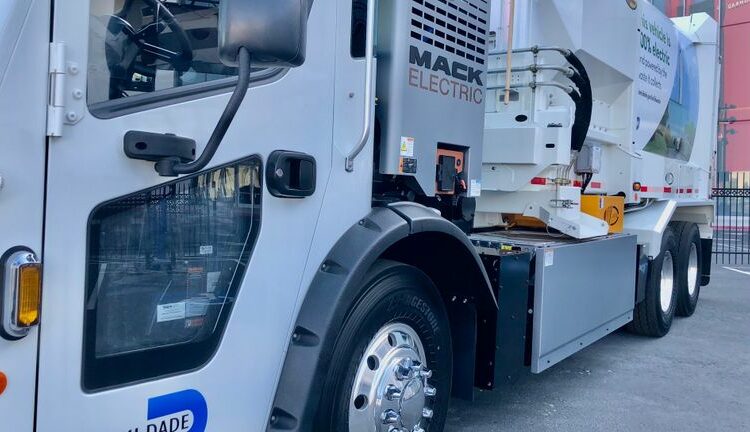Dive Brief:
- Electric refuse trucks offer the lowest fuel cost per mile and deliver noise and pollution reduction benefits, a report the Solid Waste Association of North America’s Applied Research Foundation shared Monday states, but it cautioned members against pursuing an electric transition yet.
- SWANA cited the high upfront capital costs associated with EV investments and noted “the relative lack of experience in North America with electric refuse trucks in real-world service environments” over their roughly 10-year-long lifespan. It recommended that members wait to transition their fleets “until performance and cost data from the 50-100 or so current demonstration projects can be compiled and analyzed.”
- Ultimately, SWANA advises fleet managers to continue using diesel and compressed natural gas to power trucks and to switch to renewable versions of those fuels once they are price competitive. SWANA also encouragesthose leaders to explore how waste-to-energy, anaerobic digestion and other technology could generate electricity or CNG for their fleets.
Dive Insight:
Amid evolving incentives, regulations and options, SWANA said its members requested the research to get a better understanding of costs, benefits, advantages and disadvantages of what’s available in the market. More than a dozen alternative fuels are under development or in production, it reports. Some American haulers have been more openly bullish on electric, while others are still heavily invested in CNG.
SWANA’s research analyzed how CNG, electric, and hydrogen fuel cell electric refuse trucks compare with diesel-fueled trucks on energy use, greenhouse gas emissions, fuel costs and total costs.
An estimated 150,000 refuse trucks were on the road in the U.S. in 2018, the report states. The majority of trucks are still powered by diesel; more than 17,000 are powered by natural gas — as are about 60% of new collection trucks on order — but fewer than 100 on the road in the U.S. and Canada are electric, SWANA estimates. As for hydrogen fuel cell refuse trucks, the report says 15 European cities have collectively piloted 22 such trucks, but no demonstration projects are underway in the U.S.
When comparing the costs of the trucks themselves, SWANA pegged a diesel refuse truck at $300,000 to $350,000. CNG trucks are estimated to cost about $35,000 more. The big leap is with electric, with each truck costing about $500,000 and chargers ranging from a few thousand dollars to over $35,000, the report states.
Once fuel and maintenance costs are factored in, these newer alternative fuel vehicles become more competitive. The report notes that diesel prices have “increased significantly” in 2022. Taking into account yearly cost savings of nearly $24,000 with electric, it would take an estimated 9.44 years to pay back the additional capital costs of an electric waste collection vehicle compared with diesel, it states.
The report further delves into each type of vehicle’s fuel economy; payload, energy, climate and infrastructure impacts; and additional economic and safety considerations.
The “Evaluation of Electricity and Other Alternative Fuels for Solid Waste and Recycling Collection Vehicles” report contains input from municipal waste leaders, including from local governments in Arizona, Florida and North Carolina.


